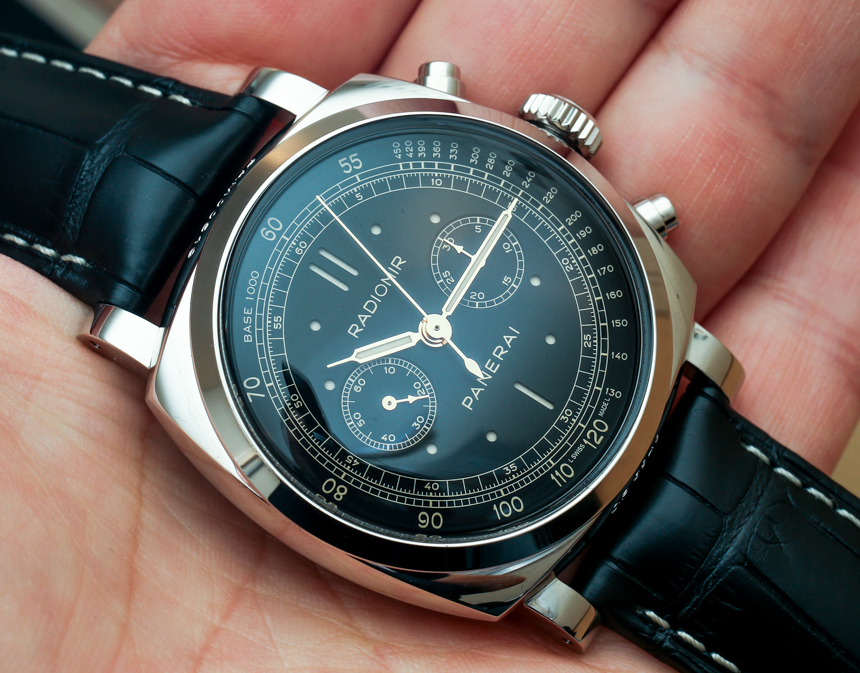
Panerai has a knack for SIHH novelties and this year is no exception. With a handful of special pieces being released, I’m going to focus on what caught my eye. Being rather firmly a Radiomir guy (unless we’re talking about last year’s drool-worthy 1950 Regatta 3 Days), I found myself taken by the new Radiomir 1940 Chronograph. With three limited edition versions rendered exclusively in precious metals, these aren’t your garden variety Radiomirs and their dial design eschews Panerai’s signature sparse appeal for something entirely more retro.
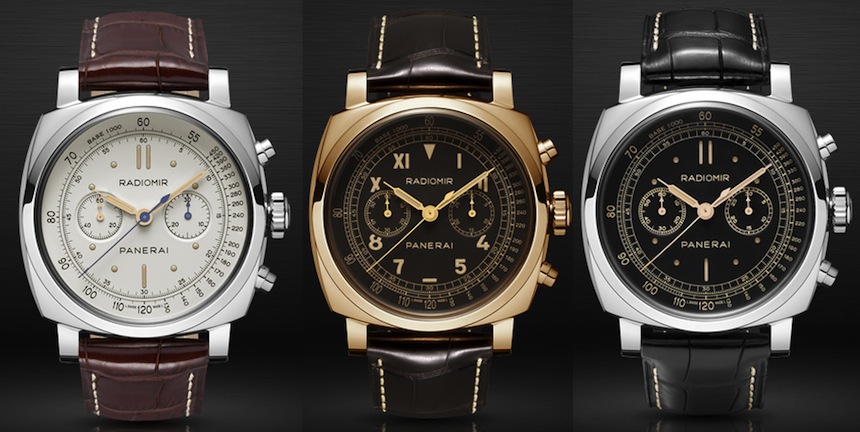
While the three versions may sport different case materials and dial designs, they do have a number of shared elements. Case size is 45mm wide and, being of the “1940” Radiomir variety, they have Luminor style lugs (rather than the Radiomir’s signature wire lugs). The 1940 Chronograph is fitted with a 2.8 mm thick plexiglas crystal up front and a sapphire crystal in the rear to allow a view of the Panerai OP XXV movement. The plexiglas is likely employed to support the vintage vibe of the 1940 aesthetic.
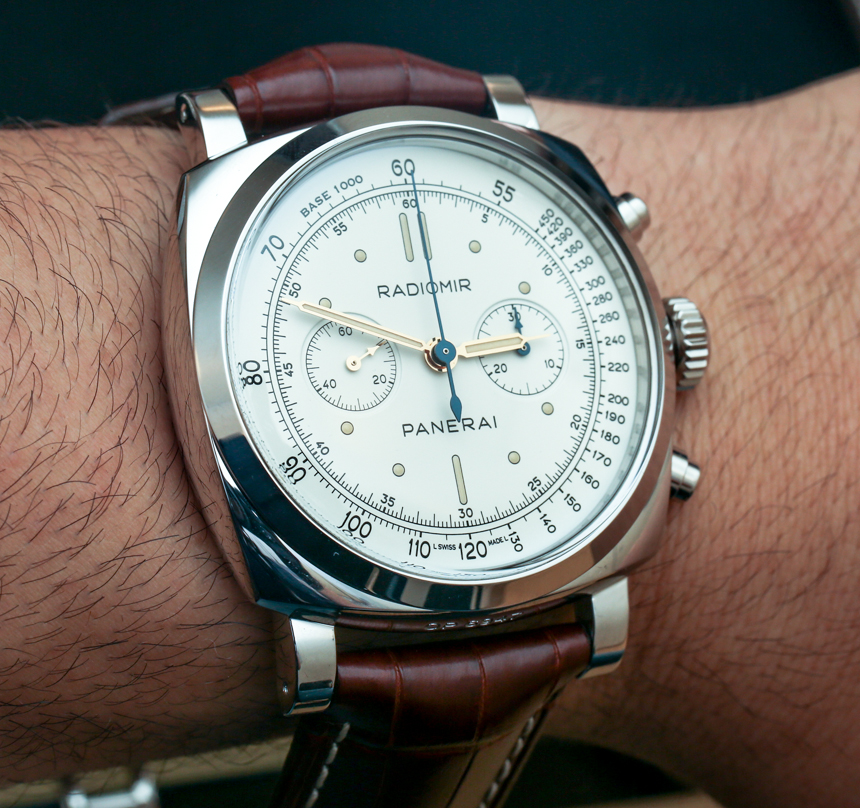
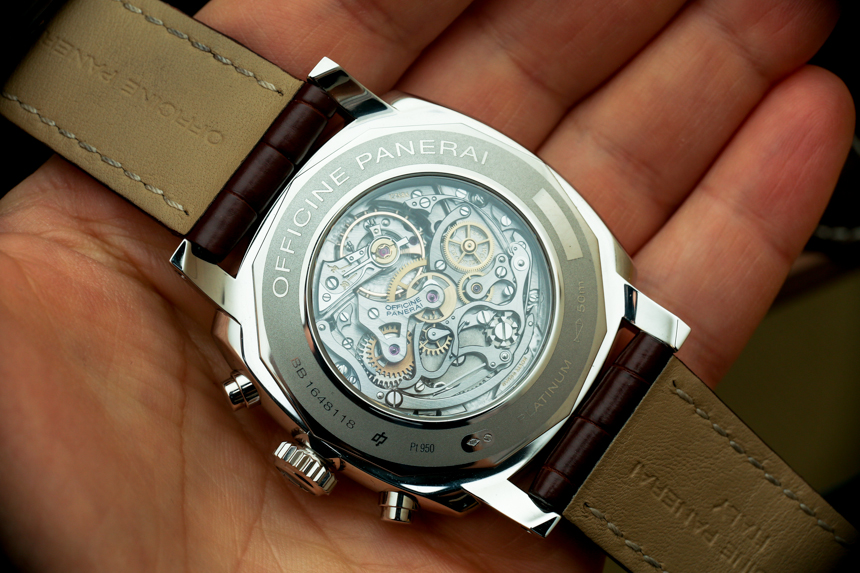
The three versions span an ivory dial model with a polished platinum case called the “Platino” which is limited to 50 units (PAM518), a brown dial model with an 18 ct polished red gold case called the “Oro Rosso” (PAM519) and a black dial model with an 18 ct polished white gold case called the “Oro Bianco” (PAM520). The latter two models are limited to 100 units and all models come on an alligator strap with matching tang buckle.
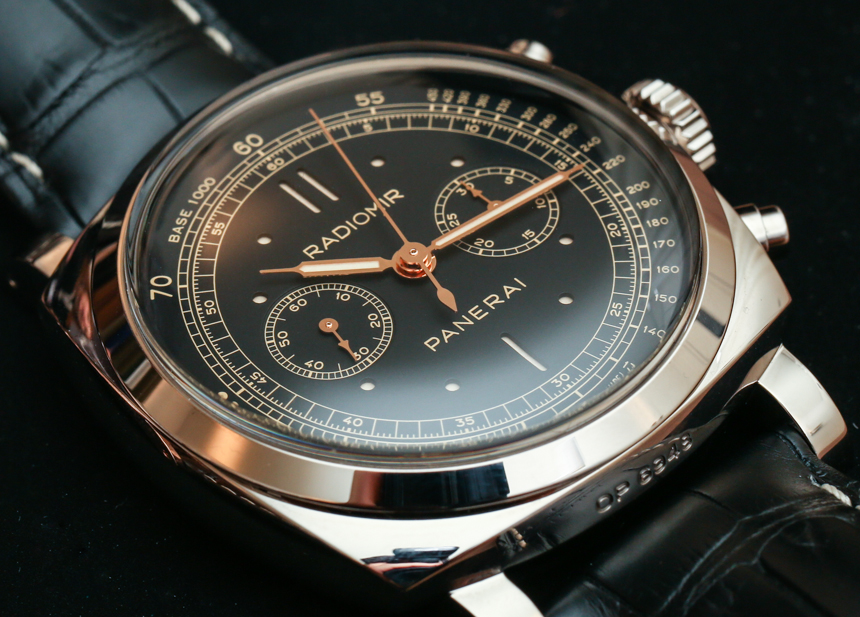
It’s pretty tough to say which is my favorite as the Platino has a beautiful ivory dial with blued steel accents for the chronograph register and chronograph seconds. This would definitely be one to see in person as there is a chance that the light tone of the dial might be overpowered by the large and chunky case. The Oro Rosso has arguably the best dial, a deep brown with a super cool California dial (a mix of Roman and Arabic numerals), but a 45 mm red gold watch is a tough sell for my wrist.
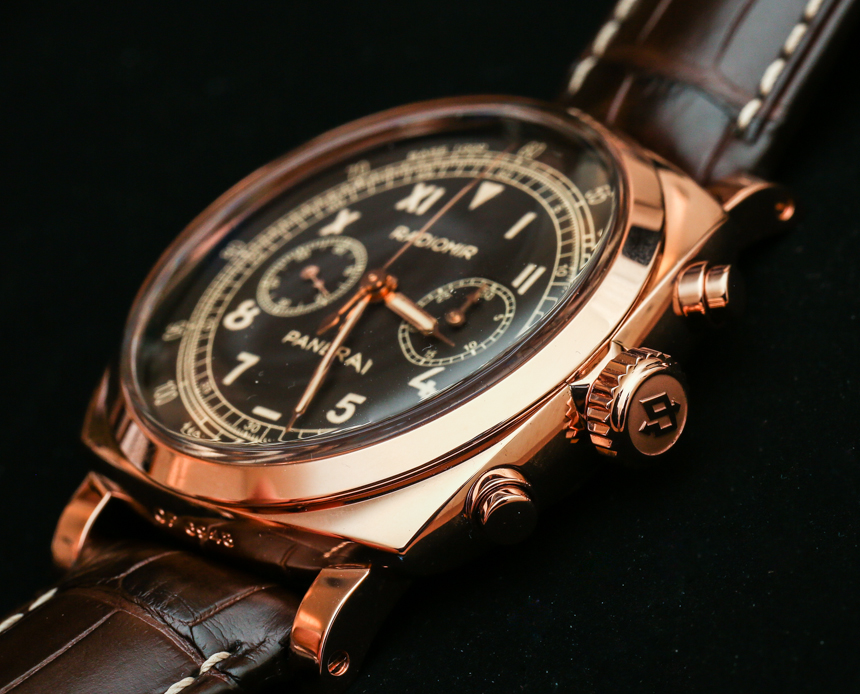
Finally, the Oro Bianco is the only one to get a sandwich dial, in which the luminous elements of the black dial are actually cut-outs that reveal a luminous layer underneath the main dial, another distinctly Panerai design trait. Each model has its merits and the overall design is one that mixes a bit of current-day Panerai with a lot of vintage-sourced style.
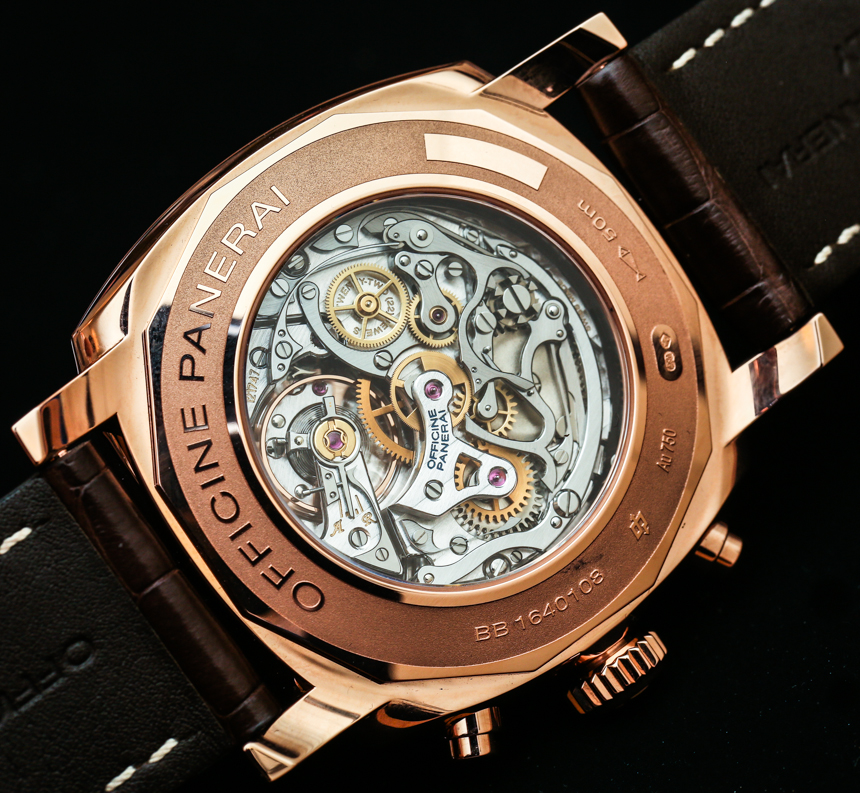
Functionally, the Radiomir 1940 Chronograph offers a standard time display along with a two register chronograph system displaying running seconds and a 30 minute chronograph measure which displays its seconds centrally (on the large seconds hand). The movement enclosed within the large case is the Panerai OP XXV which is based on the Minerva 13-22 movement which has been connected with Panerai as far back as the 1920s. This hand-wound column wheel chronograph movement features 22 jewels, a rate of 18,000 vph and 55 hours of power reserve.
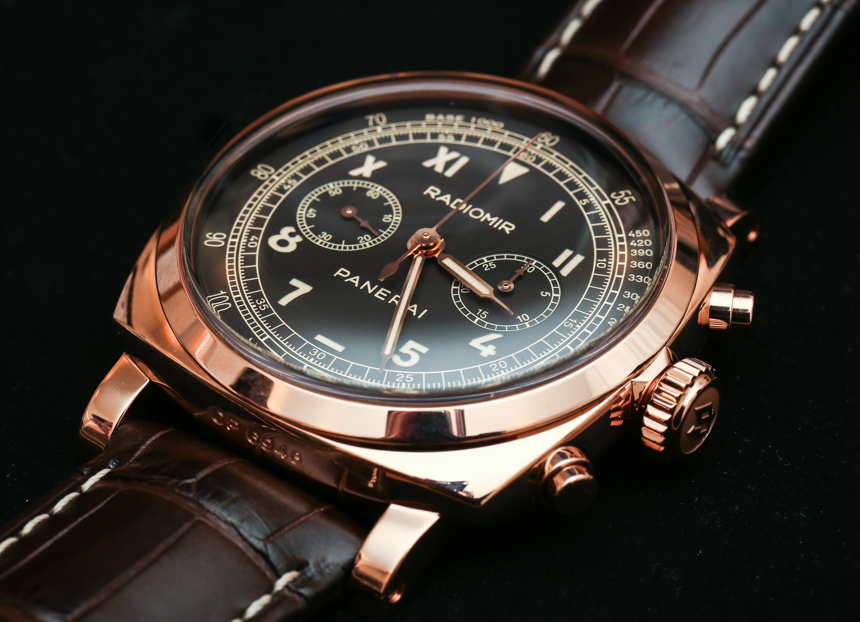
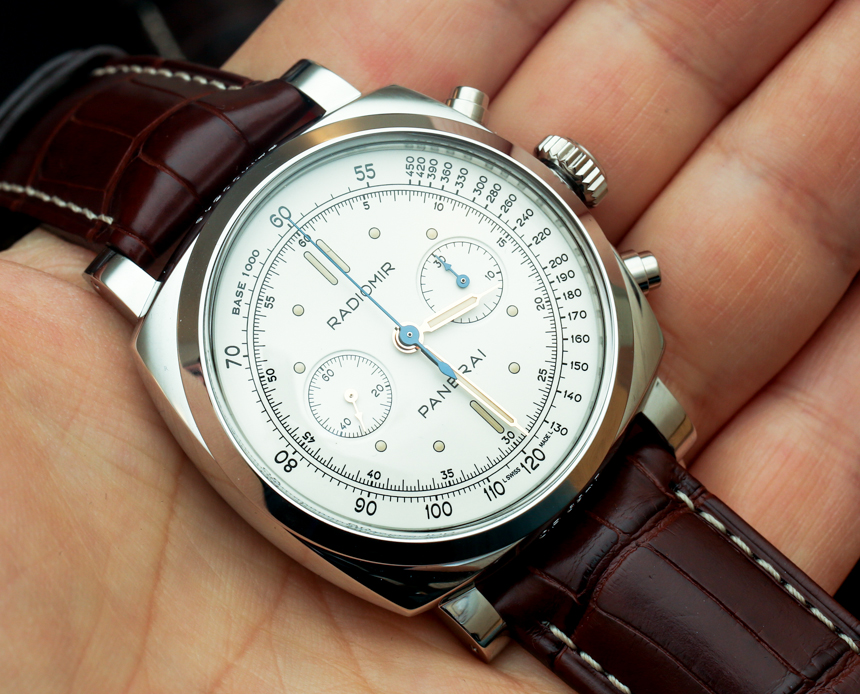
With pricing starting at €44,000 (~$54000) and topping out at €60,000 (~$81,250) for the Platino, this is definitely a case of Panerai making something special for a truly niche group of collectors. Add in the reality of a rather limited supply, the excitement generated by a stand-out design from Panerai and you have the making of a very popular watch and word on the street is that they’ve already sold out. While far too expensive to grace my wrist, price is seldom the deciding factor for the well-heeled watch lover and the Radiomir 1940 Chronograph definitely has the appeal to outweigh its price tag. panerai.com
